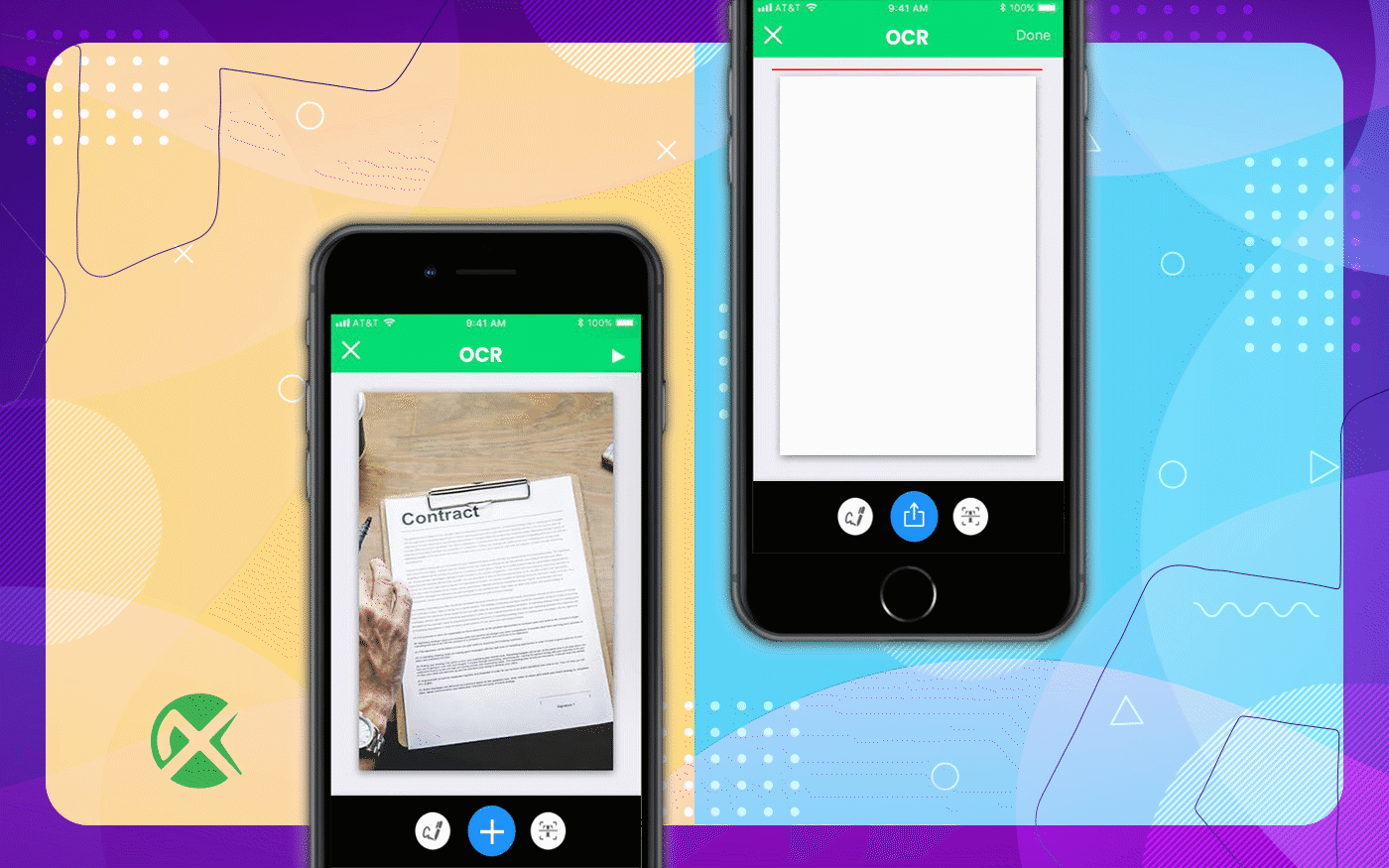Mobile App Development
Why Is Mobile App Development Important ?
Before we get started with app development and how to get started with it, we should learn its importance first. The world is going through a lot of phases. Everyday new technologies are coming into the market and the tech market is booming like crazy. Many startups are being established and the whole phase is regarded as the technological phase. The one thing that is common in all the technological phases and in all the industries is that, the demand for mobile app development has surprisingly increased over a few decades.
Nowadays every startup or every business wants to take their business online, and the best way is to make a mobile app that can be used by millions of customers online.
If we talk about numbers then, over 3.5 billion people are using smartphones in the whole world.
Let us dig deep in the statistics :
- Most people spend over half of their time on smartphones or more specifically on digital apps.
- The percentage of smartphone users spending on apps is about 90%.
- From a customer point of view, almost 80% of the users prefer native mobile apps rather than cross websites.
- The revenue generated by mobile apps alone is on course to hit the $700 billion in 2021.
- A smartphone is flooded with mobile apps. An average user has almost 30 apps installed on their mobile and spends over 35 hours every month on mobile apps.
So you see, how mobile apps are changing the market and how the need for mobile app development is increasing day by day. These above statistics are motivating and encouraging other people to create mobile apps and be a part of this system. But what exactly is mobile app development, let us discuss in detail.
What is Mobile App Development ?

It is a process that is used to build mobile applications/ Apps. It is the process of creating a software that can be installed on your device ( here it is a mobile phone ) and also enabling backend services to access data through the application programming interface i.e. APIs.
If you were to build a fully functionable mobile app, then are certain things to keep in mind :
- Screen size.
- Hardware requirement.
- Operating system.
- Software compatibility, etc.
This was about what is meant by mobile app development.
Now, if you have learned what app development is, we should now discuss the platforms for mobile app development.
Platforms for Mobile App Development :
There are some platforms for mobile app development, but the most important and the popular ones are :
If we talk about the similarities between the two different operating software, then there are many, but the key difference between the two is that they both use completely different software development kits (SDKs). The company Apple uses IOS for their devices and Google uses android for itself as well as for many other companies.
Mobile app Development Alternatives :
There are 4 alternatives for mobile app development :
- You can create native applications for mobile phones.
- You can create cross platform applications for mobile phones.
- You can create hybrid mobile applications for mobile phones.
- You can also create progressive web applications for mobile phones.
There are many reasons to choose each one of them, let us discuss each.

Why to choose Native Development for Apps ?
You choose the option of native application development when you want to use the native abilities that are offered by the mobile app development program . These native apps have all the access to capabilities of your hardware devices like camera, microphone, GPS ,that helps the native apps to execute functions quickly to make user experience much better and efficient.
In this system, it is easier to implement push notification functions. So, that is why some companies prefer native application development.
Why to choose Cross Platform development for Apps :
Cross – Platform app development is considered one of the best platforms as you actually don’t know that your user is an Android user or an IOS user, so the whole market is divided in 50 – 50 percent. If you were to publish your app in both the operating systems then either you have to make two types of apps, one supporting its type of OS. But it would be expensive and more time consuming.
With cross platform application development you can :
- Align the user experience across all the platforms available.
- Save money by hiring only one developing team who can do publishing for both the platforms.
- Save your time, energy and money by not building and maintaining two apps simultaneously.
Why to choose Progressive Web for App Development ?
Apps used for Progressive web development are always written in their traditional languages like, HTML5, CSS, JavaScript, etc. These types of applications are not accessible from the application tray or from the dashboard on your mobile device. These types of applications are only accessible by the browser of your device. It is comparatively much easier for your user to have an uninterrupted experience and will experience best connectivity. You can also solve the issues through the browser itself without using or requiring any native device capabilities like camera, GPS, etc.
Procedure For Mobile App Development :

If you want to build your own app, then these are the steps you can use to create mobile apps quickly :
- First, understand the user’s requirements.
- Then, using one of the above platforms, develop an application.
- Perform a product testing drive. Allow some users to test your app and ask for their reviews. Fix the issues, if there are any.
- Publish your Mobile Application on Play Store and App store.
In application development, you need to learn a computer language first, like java, kotlin, etc., and then after you can take your next step in the Mobile App Development process.
Now there are many things to do when you are developing an app like :
- Building an app development strategy.
- Brainstorming about the idea of the app.
- Do the required market research, like target audience, user interface, alternatives to use, etc.
- Make a min. Viable product.
- Make a complete structure of the app.
- Build its UI & UX design.
- And, finally do the marketing.
So, these were some of the steps for Mobile App Development.
Now that you have reached this far, I assume that you liked the blog and you have got some value from it. To continue embracing yourself with similar knowledge, just click on the link below:
https://24x7offshoring.com/blog/
Mobile app development is the process of creating software applications that run on mobile devices. Mobile devices include smartphones, tablets, and wearables. Mobile apps are typically downloaded from app stores, such as the Google Play Store or the Apple App Store.
There are two main types of mobile apps: native apps and hybrid apps.
- Native apps are apps that are specifically designed for a particular mobile operating system, such as Android or iOS. Native apps are typically faster and more efficient than hybrid apps.
- Hybrid apps are apps that are developed using a web development framework, such as React Native or PhoneGap. Hybrid apps can be run on both Android and iOS devices.
The process of mobile app development typically involves the following steps:
- Ideation: The first step is to come up with an idea for a mobile app. This can be done by brainstorming, market research, or simply by observing the world around you.
- Requirements gathering: Once you have an idea, you need to gather requirements for the app. This includes identifying the features that the app will have, the target audience, and the budget.
- Design: The next step is to design the app. This includes designing the user interface (UI), the user experience (UX), and the architecture of the app.
- Development: The development phase is where the app is actually built. This involves coding the app, testing the app, and debugging the app.
- Deployment: Once the app is developed, it needs to be deployed to the app store. This involves submitting the app to the app store and waiting for it to be approved.
- Marketing: Once the app is deployed, you need to market the app. This can be done through social media, search engine optimization (SEO), or paid advertising.
Mobile app development is a complex process, but it can be a rewarding one. By following the steps outlined above, you can increase your chances of success in mobile app development.
Here are some of the benefits of mobile app development:
- Reach a wider audience: Mobile apps can be downloaded by people all over the world, which means that you can reach a wider audience with your app.
- Generate revenue: Mobile apps can be monetized through in-app purchases, advertising, or subscription fees.
- Build brand awareness: Mobile apps can help to build brand awareness by putting your brand in front of a wider audience.
- Improve customer loyalty: Mobile apps can help to improve customer loyalty by providing a convenient and engaging way for customers to interact with your brand.
If you are interested in learning more about mobile app development, there are a number of resources available online. There are also a number of mobile app development courses available, both online and in person.
The mobile app development process is the series of steps involved in creating a mobile app. It can be broken down into the following phases:
- Ideation: The first step is to come up with an idea for a mobile app. This can be done by brainstorming, market research, or simply by observing the world around you.
- Requirements gathering: Once you have an idea, you need to gather requirements for the app. This includes identifying the features that the app will have, the target audience, and the budget.
- Design: The next step is to design the app. This includes designing the user interface (UI), the user experience (UX), and the architecture of the app.
- Development: The development phase is where the app is actually built. This involves coding the app, testing the app, and debugging the app.
- Deployment: Once the app is developed, it needs to be deployed to the app store. This involves submitting the app to the app store and waiting for it to be approved.
- Marketing: Once the app is deployed, you need to market the app. This can be done through social media, search engine optimization (SEO), or paid advertising.
Each phase of the mobile app development process is important, and they all need to be completed in order to create a successful app.
Here are some of the key considerations for each phase of the mobile app development process:
Ideation:
- The idea for the app should be something that people will find useful or entertaining.
- The idea should be something that can be executed within the budget and timeframe that you have available.
Requirements gathering:
- The requirements for the app should be clearly defined, so that the development team knows what they need to build.
- The requirements should be realistic, so that the app can be completed within the budget and timeframe that you have available.
Design:
- The UI and UX of the app should be well-designed, so that users find it easy to use and navigate.
- The architecture of the app should be sound, so that the app is reliable and performs well.
Development:
- The app should be coded using a programming language that is appropriate for the platform that you are targeting.
- The app should be tested thoroughly, so that any bugs are found and fixed before the app is released.
Deployment:
- The app should be submitted to the app store in the correct format.
- The app should be marketed to the target audience, so that people know about it and can download it.
The mobile app development process can be a complex one, but it is also a rewarding one. By following the steps outlined above, you can increase your chances of success in mobile app development.
Here are some key factors to consider when developing a mobile app:
- The target audience: Who is your app for? What are their needs and wants?
- The purpose of the app: What will the app do? What features will it have?
- The platform: Which platforms will the app be available on? (iOS, Android, etc.)
- The budget: How much money do you have to spend on development?
- The timeline: How long do you have to develop the app?
- The complexity of the app: How complex will the app be? (Simple, medium, complex)
- The monetization strategy: How will you make money from the app? (In-app purchases, advertising, subscription fees, etc.)
- The marketing strategy: How will you market the app? (Social media, search engine optimization (SEO), paid advertising, etc.)
These are just some of the factors to consider when developing a mobile app. By carefully considering these factors, you can increase your chances of success.
Here are some additional factors that you may want to consider:
- The competition: What other apps are out there that are similar to yours?
- The legal and regulatory requirements: What are the legal and regulatory requirements for mobile apps in your target market?
- The technical feasibility: Is it technically feasible to build the app that you have in mind?
- The maintenance and support: How will you maintain and support the app after it is released?
By considering all of these factors, you can increase your chances of developing a successful mobile app.
The mobile app development industry is constantly evolving, and there are always new trends emerging. Here are some of the most important trends in mobile app development in 2023:
- Progressive Web Apps (PWAs): PWAs are web apps that are designed to work like native apps. They can be installed on the user’s device and accessed offline. PWAs are becoming increasingly popular because they are more reliable and secure than traditional web apps.
Progressive Web Apps (PWAs) mobile app development trend
- Cross-platform development: Cross-platform development is the process of developing a single app that can be used on multiple platforms, such as Android and iOS. Cross-platform development tools make it easier to develop and maintain apps, and they can save developers time and money.
Cross-platform development mobile app development trend
- Artificial intelligence (AI) and machine learning (ML): AI and ML are becoming increasingly important in mobile app development. AI can be used to improve the user experience, personalize content, and detect fraud. ML can be used to improve the performance of apps, predict user behavior, and make recommendations.
- Augmented reality (AR) and virtual reality (VR): AR and VR are becoming increasingly popular in mobile app development. AR can be used to overlay digital content on the real world, while VR can create immersive experiences that transport users to another world.
Augmented reality (AR) and virtual reality (VR) mobile app development trend
- Chatbots: Chatbots are becoming increasingly popular in mobile app development. Chatbots can be used to provide customer service, answer questions, and give advice. They can also be used to automate tasks and improve the user experience.
Chatbots mobile app development trend
- 5G: 5G is the next generation of mobile network technology. 5G offers faster speeds, lower latency, and more bandwidth than 4G. This will enable new and innovative mobile app experiences, such as real-time streaming and AR/VR.
5G mobile app development trend
These are just some of the most important trends in mobile app development in 2023. By keeping up with these trends, you can ensure that your mobile apps are ahead of the curve.

